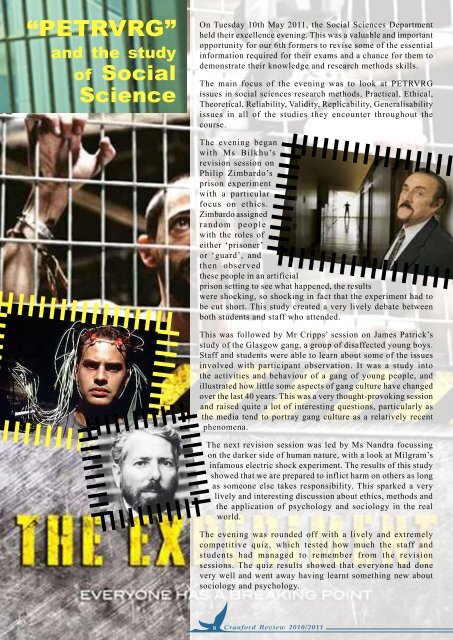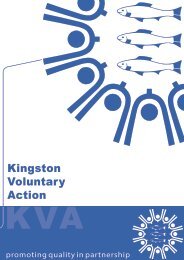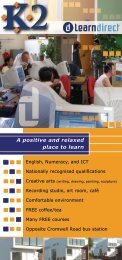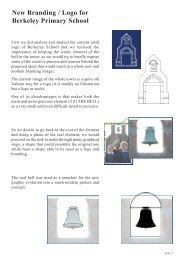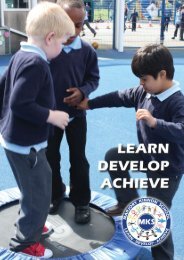Cranford Review 2010-2011 (Annual edition 2011)
“Cranford Review” © is a publication of Cranford Community College. Headteacher & Director: Kevin Prunty Editor-in-chief: Jessica Joyce Graphic design: Enzo Gianvittorio Danese (Enzo GD) Printed by: Springfieldpapers.com https://en.wikipedia.org/wiki/Cranford_Community_College
“Cranford Review” © is a publication of Cranford Community College.
Headteacher & Director: Kevin Prunty
Editor-in-chief: Jessica Joyce
Graphic design: Enzo Gianvittorio Danese (Enzo GD)
Printed by: Springfieldpapers.com
https://en.wikipedia.org/wiki/Cranford_Community_College
You also want an ePaper? Increase the reach of your titles
YUMPU automatically turns print PDFs into web optimized ePapers that Google loves.
“PETRVRG”<br />
and the study<br />
of Social<br />
Science<br />
On Tuesday 10th May <strong>2011</strong>, the Social Sciences Department<br />
held their excellence evening. This was a valuable and important<br />
opportunity for our 6th formers to revise some of the essential<br />
information required for their exams and a chance for them to<br />
demonstrate their knowledge and research methods skills.<br />
The main focus of the evening was to look at PETRVRG<br />
issues in social sciences research methods. Practical, Ethical,<br />
Theoretical, Reliability, Validity, Replicability, Generalisability<br />
issues in all of the studies they encounter throughout the<br />
course.<br />
The evening began<br />
with Ms Bilkhu’s<br />
revision session on<br />
Philip Zimbardo’s<br />
prison experiment<br />
with a particular<br />
focus on ethics.<br />
Zimbardo assigned<br />
random people<br />
with the roles of<br />
either ‘prisoner’<br />
or ‘guard’, and<br />
then observed<br />
these people in an artificial<br />
prison setting to see what happened, the results<br />
were shocking, so shocking in fact that the experiment had to<br />
be cut short. This study created a very lively debate between<br />
both students and staff who attended.<br />
This was followed by Mr Cripps’ session on James Patrick’s<br />
study of the Glasgow gang, a group of disaffected young boys.<br />
Staff and students were able to learn about some of the issues<br />
involved with participant observation. It was a study into<br />
the activities and behaviour of a gang of young people, and<br />
illustrated how little some aspects of gang culture have changed<br />
over the last 40 years. This was a very thought-provoking session<br />
and raised quite a lot of interesting questions, particularly as<br />
the media tend to portray gang culture as a relatively recent<br />
phenomena.<br />
The next revision session was led by Ms Nandra focussing<br />
on the darker side of human nature, with a look at Milgram’s<br />
infamous electric shock experiment. The results of this study<br />
showed that we are prepared to inflict harm on others as long<br />
as someone else takes responsibility. This sparked a very<br />
lively and interesting discussion about ethics, methods and<br />
the application of psychology and sociology in the real<br />
world.<br />
The evening was rounded off with a lively and extremely<br />
competitive quiz, which tested how much the staff and<br />
students had managed to remember from the revision<br />
sessions. The quiz results showed that everyone had done<br />
very well and went away having learnt something new about<br />
sociology and psychology.<br />
Youth and<br />
Philanthropy Initiative<br />
wins £3000 for The 2000 Club<br />
Wednesday 20th July <strong>2011</strong> saw the spectacular<br />
final event of the Youth and Philanthropy<br />
Initiative (YPI) that year 12 students<br />
had been working on in their PSHCE lessons. One<br />
local, grass root charity was awarded £3000 (funded<br />
privately by the Toskan Casale Foundation). YPI gives<br />
our students a hands-on experience of philanthropy<br />
that provides them with the skills and awareness to<br />
make a positive difference to their communities. In<br />
groups the students researched and discussed the social<br />
needs of our local community and identify the local<br />
social service charities they believe are best placed to<br />
make a positive contribution. As part of this scheme<br />
year 12 students visited and built relationships with<br />
their charity, and all the charities had representatives<br />
attending at the final event.<br />
The students had prepared presentations in order to<br />
pitch their charity in front of four judges, Mr Prunty,<br />
Mr Scher, Mr Hoffman and Ms Berndt. In total there<br />
were seven groups in the final, with a range of charities<br />
and social issues. For example, the Icthyosis Support<br />
Group highlighted a serious skin condition that most<br />
people have no knowledge about.<br />
The groups were extremely passionate about their<br />
charities, and were able to articulate just how<br />
important their charities are to the people they<br />
support. The presentations were outstanding and I<br />
was greatly impressed by the range of presentations,<br />
which included role play and poetry. As many of our<br />
students have not presented or spoken in front of a<br />
large formal audience, this experience was even more<br />
rewarding for them to develop their confidence in<br />
public speaking.<br />
The judges had an exceptionally difficult decision<br />
to make on deciding which group should be awarded<br />
the money to present to their charity. After some<br />
deliberation Mr Hoffman explained the rationale<br />
behind their decision. They based their decision on<br />
how the £3000 would most benefit the local community<br />
group that served our local community. The judges<br />
were very complimentary to the groups, in particular<br />
they commented on the group pitching for Hounslow<br />
Extra Club (Kuljeet Kang, Gulvant Atwal and Raihan<br />
Ahmed), Horn of Africa Community Group (Faiza<br />
Ali, Fatima Adan, Sonela Seljekaj, Juanita Stuber<br />
and Nasrin Warsame) and The 2,000 Club (Maninder<br />
Bhambra, Ambryn Saini and Ashnee Dhondee).<br />
However, there could only be one winning group<br />
which was The 2,000 Club. This charity is based in<br />
Heston and offers membership to adults who have a<br />
disability, offering a range of recreational and sporting<br />
activities. It was a touching moment when the charity<br />
was awarded the large cheque for £3000 pounds. The<br />
charity had 6 representatives, who were overwhelmed<br />
by the whole experience. Not only will the money help<br />
secure further activities for these people but it will<br />
encourage links between the different charities as they<br />
work together to achieve their ultimate aim. A member<br />
(Ashnee Dhondee) of the winning team declared; “I was<br />
absolutely thrilled that The 2,000 Club won, it is such a<br />
rush of adrenaline. Ambryn added that she really wants<br />
to keep this relationship active and keep good links<br />
with the charity. Maninder Bhambra concluded, “It was<br />
a brilliant experience and I have really developed my<br />
presentation skills.” Faiza Ali had this to say about the<br />
experience, “It was an interesting experience as it gave<br />
me an opportunity to work within a group researching<br />
something I felt passionate about.”<br />
I want to say well done to all the competitors, I was<br />
very proud of all of you. Thank you to the judges for<br />
helping to make such an important decision and to the<br />
charities for attending our event. Lastly, an important<br />
thank you to YPI for allowing us this opportunity<br />
(and the funding) for this event.<br />
<strong>Cranford</strong> <strong>Review</strong> <strong>2010</strong>/<strong>2011</strong><br />
8 Excellence in all areas 9


